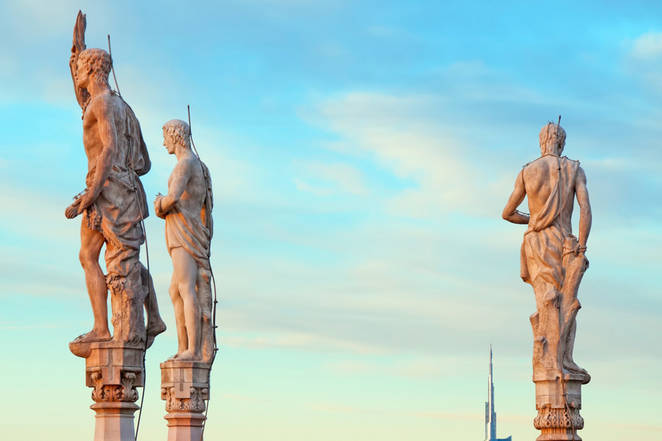Besides good restaurants and friendly chats, Eurojuris members who gathered in Milan last month were offered quality speeches about the future of this town and its potential.
Eurojuris lawyers gathered in Milan between the 9th and 11th of May 2014.
Besides practice groups and cultural visits, they had the chance to listen to a few Italian speakers who came to talk about everything you need to know if you plan to do some business in this city, especially in regard of the upcoming Expo 2015. One of the three speakers was Mrs Patrizia Aversano, who introduced the city of Milan and its projects by projecting slides to demonstrate the potential of this place. Special opportunities will be available through a dedicated website which allows a simplified procedure to propose events for the Expo, find the right place for them, and have them approved by the authorities.
Our members were also granted a colourful speaker in the person of Mr Giacomo Biraghi, from the organisation in charge of Expo 2015 ( www.tavoliexpo.it). In a vivid and humorous speech, he told us about the future Expo, which will take place in Milan next year. He started by giving a fascinating story of World's Fairs. “When we think about international expositions,” he said, “We have in mind the Eiffel tower, the Atomium, and the infamous Soviet and Nazi pavilions fighting against each other. You can forget all about them!” He explained that there were three generations of World's Fairs. “The first ones were marked by colonial ambitions and they were actually created first with the intention of promoting colonial empires. They multiplied and the need for an authority to regulate them became obvious. So in 1928 an international bureau was created which defined how they should be organised. This inaugurated the second generation of fairs: the era of diplomacy, which lasted until the end of the Cold War. Then, the bureau created the third generation of fairs: they are now based on themes.”
Milan has chosen the theme of food, more precisely “feeding the planet.”
Countries will be invited to create pavilions about food production and management, in a way that everyone can understand. “It is not an elitist event,” explained Mr Biraghi. “Fairs are for everyone.” He compared fairs to a theme park, where families will go to see attractions. “A fair is a very difficult and expensive process, it's like building a cruise ship that will only have a maiden voyage and then sink” (hearing this, an Italian lawyer in the room exclaimed sarcastically, “We have some experience of this!”). The process of organising such a fair is full of traps: “It's a six month investment, and you don't have one concept: each nation will do pretty much whatever they want. You have all the ingredients for disaster!”
How do you cope with this? “There is a rule of political correctness in fairs: no politics, no contests, no geographical rivalry. Everything must be positive. We also have to all remain humble: the fair will not solve world hunger. It can open eyes and raise consciousness, but we will make no miracles. Our purpose is not to save the world, but to entertain visitors!” Even if it seems like a huge challenge, the city of Milan has expressed a lot of enthusiasm for this project. Overall, Mr Biraghi concluded that it was an extremely important honour and opportunity for his town.
Is Milan the only place to be? The whole country has potential, if we believe another speaker invited to the Congress, Mr Federico Oriana. A lawyer specialising in real estate, he is the CEO of ASPESI, an association of Italian independent Real Estate Develloppers. Like the two other speakers, he has been invited by Pietro Bembo (EJ Italy), himself a Milano-based lawyer specialised in Construction and Real Estate and in Commercial law and litigation.
--
Click here to read the full speech of Mr Oriana


